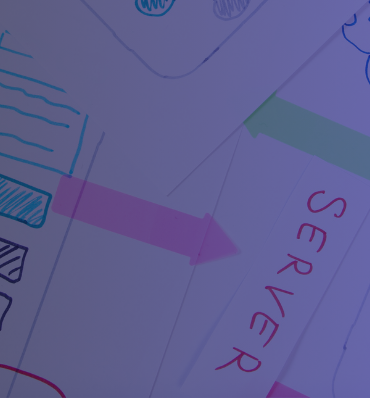Tech experts view cloud computing as the engine behind the world’s most transformative tech trends, including IoT. But the more does not necessarily mean the merrier, especially for decision-makers searching for the ideal IoT cloud platform for their project.
Business and start-up leaders in the process of advancing their IoT systems are standing in front of too many cloud options for their network, making it increasingly challenging to make an informed call.
If your organization is also walking down that path, our guide is for you! Explore the top cloud platforms within the field of IoT and which you should choose based on your development needs.
Why IoT needs a cloud architecture
The application of cloud computing is a real game-changer in IoT development. It allows users to upload information on an online system, allowing access from any device and from anywhere.
IoT system is all about handling data as a solid information management cycle is the foundation of any robust IoT system. This nature of IoT is what makes it extra-compatible with cloud computing technology.
Cloud platform will work as the central point within an IoT architecture. From which, data flows from the receiving end will be safely stored on the cloud platform and transmitted to other relevant components to trigger signals or analyze.

Source: Dzone
Most popular IoT cloud platforms
The cloud computing market has recently been quite saturated due to the growing number of enterprises wanting to jump on the bandwagon of a highly potential field.
Despite the overwhelming interest, certain cloud platforms stand out and receive notable recognition for their efficacy.
Below are a few household names regarding cloud computing technology for IoT systems
| Platforms | What is it? | How does it work? |
| Amazon Web Services Cloud | Amazon has the most extended history of turning the cloud into a selling product, which they started in 2014. Its platform offers organizations a suite of services that can support real-time data transmission, storage, and analytics. Their system also provides plenty of room for scalability, facilitating billions of devices and trillions of interactions. | – Enable smooth connectivity between cloud-based systems and hardware components – Built-in AWS machine-learning functionalities will facilitate robust data analytics processes – Integration of REST API to carry out effective device and application management |
| Microsoft Azure IoT Hub | Microsoft’s cloud services is a highly evolved system that includes cloud storage, machine learning, and IoT operating system. The system enables developers to build advanced applications while collecting valuable feedback from users for refinement. | – Allow local devices to connect to Azure IoT Hub – Use Azure Machine Learning to develop models to predict possible outcomes through data collected from sensor devices |
| IBM Watson IoT Cloud Platform | IBM’s cloud platform is another big name in the field, which offers an overarching range of services for a full-cycle IoT network. The platform is open-source and beginner-friendly due to its straightforward and intuitive interface. | – Offers an open architecture that facilitates better migration to the cloud – Data is stored for a pre-determined period to support historical data collection based on a timeline |
| Google Cloud IoT Core | Google’s platform boasts the convenience of its web-scale processing and its global private fiber network alongside other standard cloud services, including storage and analytics. The underlying machine learning algorithm is also well-known for detecting unusual activities and malfunctions, allowing timely responses. | – Compatible with other apps within the Google Business Suits, including Gmail, Search, or Youtube -Allow the use of diverse languages and platforms to build applications |
| Oracle IoT | Oracle is a secure, cost-effective platform specializing in managing work processes and logistical matters. Aside from real-time data analytics and data management in the IoT system, Oracle’s platform also supports vivid visualization that is valuable for decision-making processes. | – Offers access to devices marketplace where you can easily search for components that are compatible with your current system – Application template library – Access to an established developer community with well-versed technical insights |
Which IoT cloud platforms should you choose?
The decision to choose an IoT cloud platform lies in multiple factors, ranging from your project goals to the knowledge and capability of your current IT team.
By deep-diving into the section above on popular IoT cloud platforms on the market, you have gained considerable knowledge of the big names within the field and what they have to offer.
However, to answer the question of which cloud solution to deploy, you need to combine your understanding of the IoT project of your business for an informed and concrete decision.
Need help with IoT development?
We understand that making a pros and cons list or a SWOT analysis to decide which cloud platforms to adopt can be burdensome, not to mention other big decisions for an IoT project development.
Why not find a team with the right expertise and technical knowledge to handle that for your business swiftly? At Sunbytes, we comprehend what makes an IoT tick and thrive.
Let’s get started with Sunbytes
Drop us a line and we’re just 1 click away to make your projects ready


